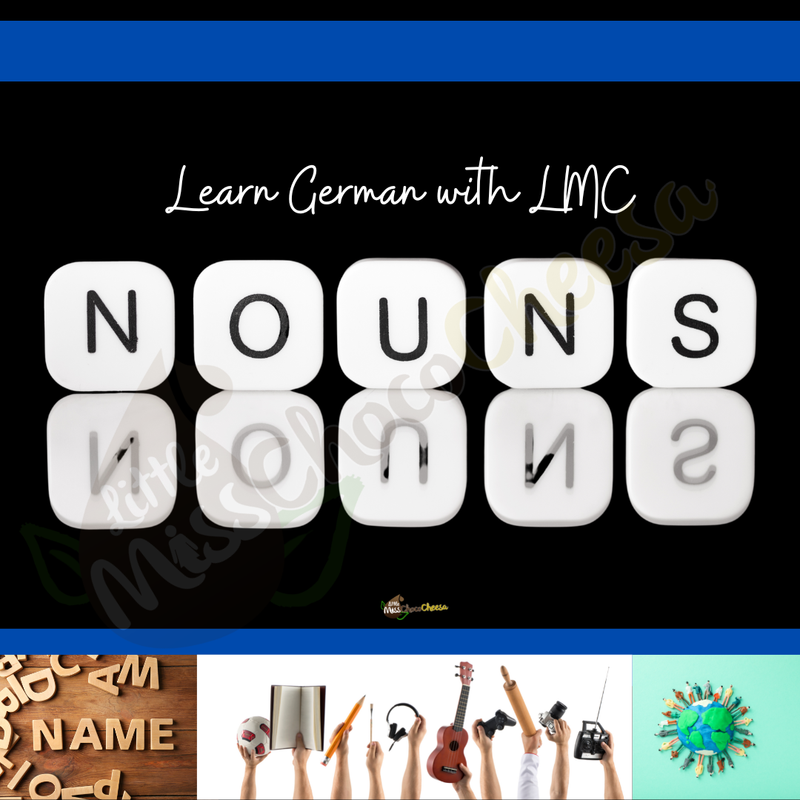To learn German A1 and pass the German A1 exam, you really have to understand what a noun is and memorize tons of them. We have already learned a few examples of nouns from previous lessons.
A noun is a word that functions as the name of a specific object or set of objects, such as living creatures, places, actions, qualities, states of existence, or ideas. Badically, nouns can be a being, a place or a thing. The most important thing to know is that in German, all nouns are always capitalized, even when they are in the middle of a sentence.
German nouns have gender and always possess an article indicating the gender. Masculine (der), Feminine (die) and Neutral (das). You have to learn a new noun along with its article (der, die, das).
Read the sentences below. You would see that German nouns are always capitalized, even if they are in the middle of a sentence.
Mein Auto ist kaputt! (My car is broken!)
Guten Abend! (Good evening!)
Er ist mein Bruder. (He is my brother.)
Sie ist meine Mutter. (She is my mother.)
Die Katzen sind groß! (The cats are big!)
Wo ist die Katze? (Where is the cat?)
Mein Haus ist klein. (My house is small).
Ich lerne Deutsch. ( I am learning German).
Ich spreche Englisch. (I speak English).
Below is another list of new vocabulary you have to learn and memorize. Play the video to listen to the pronunciation of the words.
Vocabulary Set 2: Eating and Food
- das Restaurant - restaurant
- der Gast - guest
- die Speisekarte - menu
- die Rechnung - bill
- das Glas - glass
- der Zucker - sugar
- das Salz - salt
- die Butter - butter
- die Pommes frites - French fries
- der Schinken - ham
- das Öl - oil
- die Kartoffel - potato
- der Reis - rice
- der Salat - salad
- der Tee - tea
Summary:
Nouns can be a being, a place or a thing. German nouns have gender and always possess an article. The article depends on the noun's gender (male, female, neutral) and number (singular or plural).
There are 3 genders of nouns. Masculine (der), Feminine (die) and Neutral (das). You have to learn a new noun along with its article (der, die, das).
In the next lesson, we are going to start learning the personal pronouns.
To go back to the lessons list, click here.



0 Comments